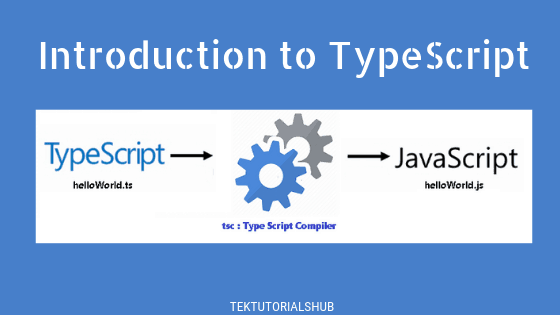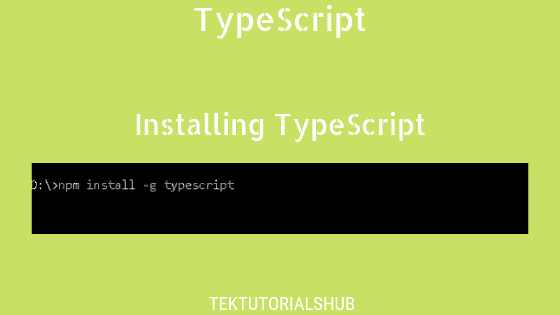The null in TypeScript is a special value & also a data type. The value null represents the intentional absence of any object value. It is one of TypeScript’s primitive values and is treated as falsy for boolean operations. The value of null is represented in using the literal null.
Table of Contents
What is Null Value in TypeScript
The value null represents the intentional absence of any object value. It represents nothing or no value. null means we know that the variable does not have any value. TypeScript does not set the value of a variable to null. We need to do set it explicitly. To do that we assign the literal null to the variable
1 2 3 4 | let a //a is of type any a=null |
TypeScript also has an undefined value and it means the value is not assigned or we do not know its value.
Take an example of the following person function which returns the person object. It has two fields. name & dateOfMarriage. The name is a required field, but the dateOfMarriage is optional because not everyone is married.
1 2 3 4 5 6 7 8 | function person(name:string,dateOfMarriage:Date|null) { return { name: name, dateOfMarriage: dateOfMarriage } } |
Now, what value do you store in dateOfMarriage if the person is not married?. We explicitly set its value to null to indicate there is no value, which implies that the person is not married.
1 2 3 4 5 6 7 8 | //Null is set explicitly. Person is not married console.log(person("Colin Bower", null)) //Output //{name: 'Colin Bower', dateOfMarriage: null} |
Null Data Type
Null is also a Data Type in TypeScript.
We can create a null variable by annotating the variable with null. Declaring a variable as of type null does not give it a value of null, but it gets the default value of undefined. We must assign the value null to it.
1 2 3 4 5 6 7 | let nullVar: null; console.log(nullVar) //undefined nullVar =null; console.log(nullVar ) //null |
The only values that you can assign to a null variable are null. You can also assign undefined if you are using <= TypeScript 1.8 or you have disabled strictNullCheck.
1 2 3 4 5 6 7 8 9 10 11 | let nullVar: null; //Allowed nullVar=null; nullVar=undefined; //only if strictNullCheck is disabled //Not Allowed nullVar=10; //type '10' is not assignable to type 'null' nullVar={} //Type '{}' is not assignable to type 'null' |
Non Nullable Types
TypeScript 2.0 Introduced the strictNullChecks. Prior to that, you can assign null to variables of other Data Types.
Since TypeScript 2.0 you can assign null only to a variable of type null or any
1 2 3 4 5 6 7 8 9 10 11 12 13 14 15 16 | let anyVar:any let nullVar:null anyVar=null //ok nullVar=null //ok let undefVar:undefined let numVar:number //NOT ok undefVar=null //Type 'null' is not assignable to type 'undefined'. numVar=null //Type 'null' is not assignable to type 'number'. |
To Make variables of other data types nullable, we need to explicitly specify it. We can make use of the union type, which allows us to construct a type that is a union of two or more types. In the following example, the numVar is a union type containing the number, null & undefined types.
1 2 3 4 5 6 7 | let numVar: number | null | undefined; numVar= 24; //ok numVar= undefined; //ok numVar= null; //ok |
You can revert to the old behavior if you disable strictNullChecks
Typeof null is object
Although the data type of null value is null, the TypeOf operator incorrectly returns “object”. This is a very old bug in JavaScript. The bug is not fixed as it will break many existing codes.
1 2 3 4 5 6 | let a = null console.log(typeof(a)) //object |
Checking for Null
You cannot use typeof operator to check for null as it returns “object”. Hence you can either use the == or ===
1 2 3 4 5 6 7 8 9 10 | let nVar:number| null | undefined;; nVar=null; console.log(nVar) //null console.log(typeof nVar) //object console.log(nVar==null) //true console.log(nVar===null) //true |
The undefined is also treated as having no value. Hence running a loose equality checker between them will return true
1 2 3 4 5 6 | console.log(null==undefined) //true let a //a has the default value of undefined console.log(a==null) //true because both null & undefined is treated as no value |
That is the reason why you should use the strict equality checker which also checks the data type.
1 2 3 4 | let a console.log(a===null) //false because Because types are different |
null is falsy
The null along with false, 0, '', undefined, NaN is considered as falsy values in JavaScript. Whenever JavaScript encounters a null in an expression it implicitly coerces it to false
1 2 3 4 5 6 7 8 9 10 11 | let a =null if (a) { console.log("true") //this code does not execute } if (!a) { console.log("false") //false } |
But that does not mean that null is false. It is neither false nor true. null does not have any value
1 2 3 4 5 6 7 8 9 10 11 12 13 14 | let a =null //loose equality check console.log(a==false) //false console.log(a==true) //false //Strict equality check console.log(a===false) //false console.log(a===true) //false |
References
Read More


